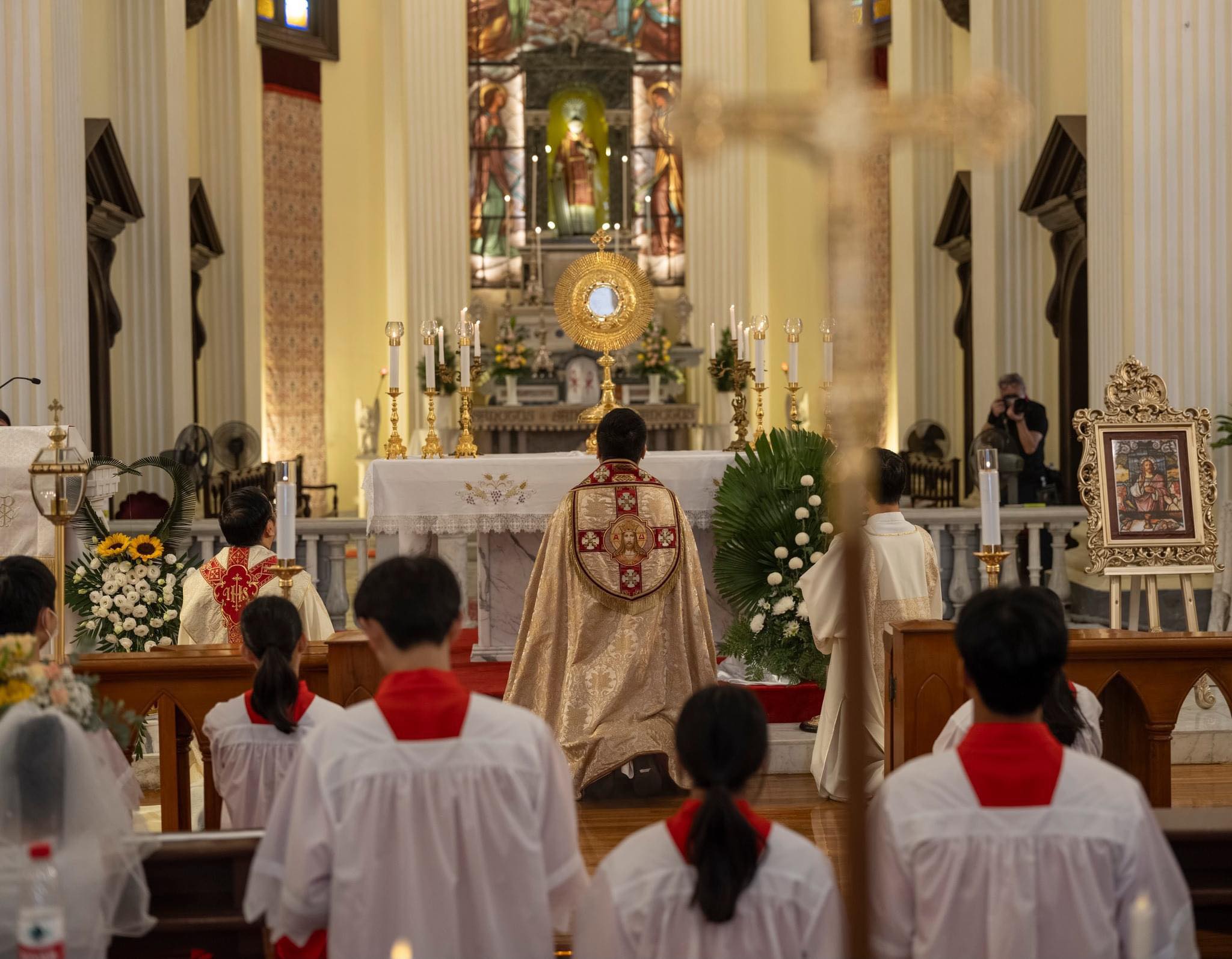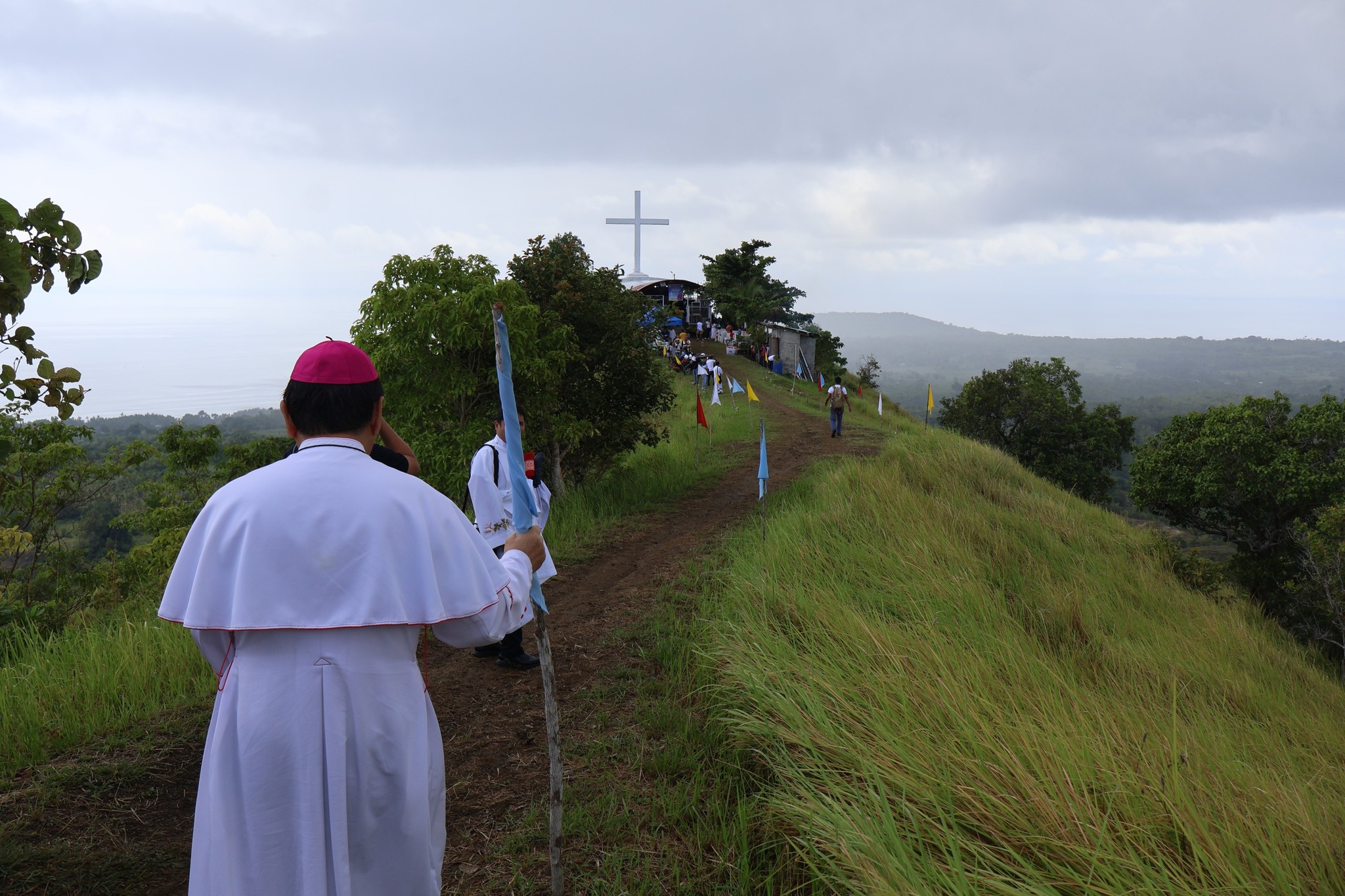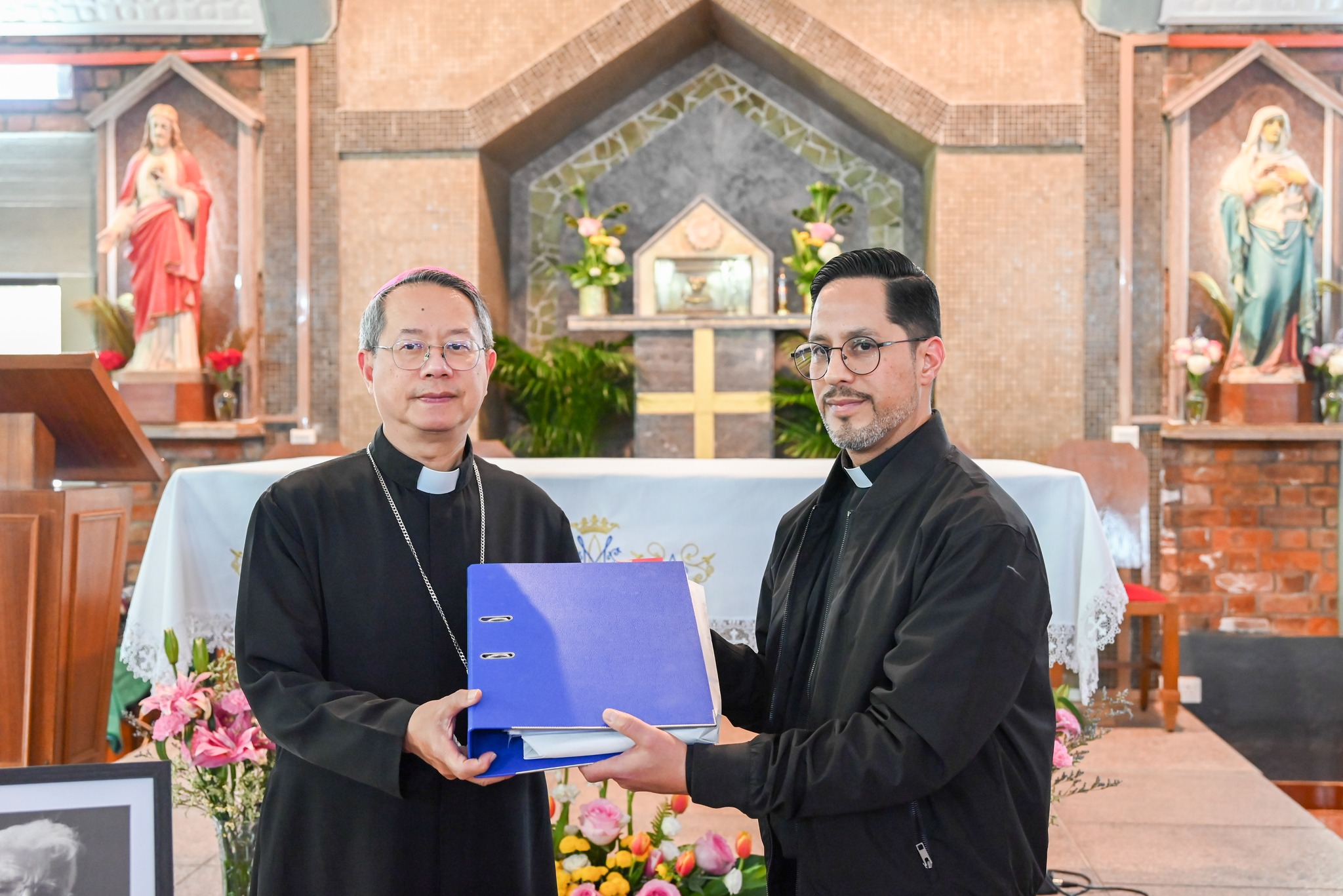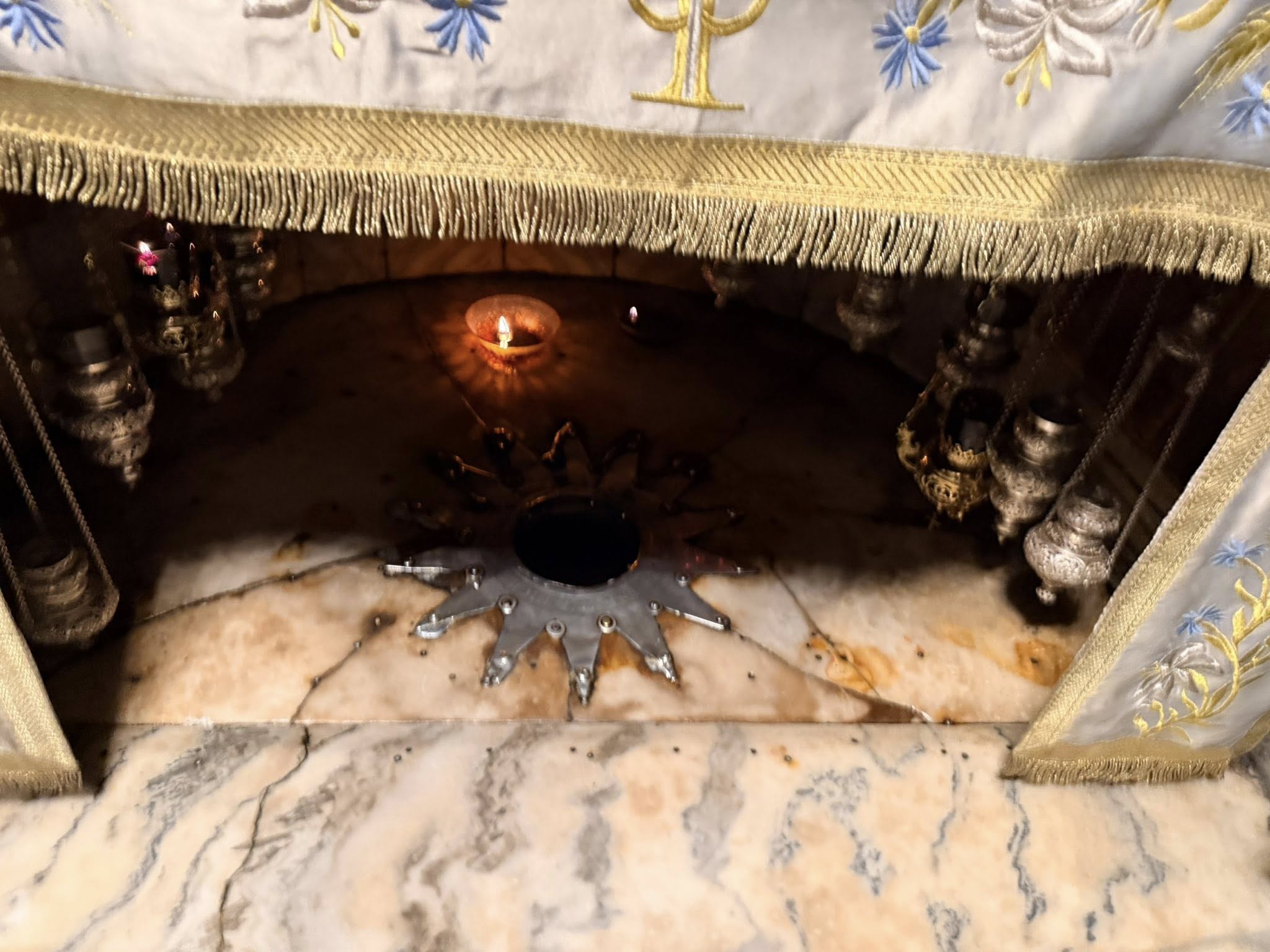FAUSTO GOMEZ, OP
A renewed understanding of hope – human as well as Christian – has helped me through the years to become increasingly aware of the unique significance of this day, of today. From the perspective of faith, of spiritual-moral life, what is the meaning of “today”?
The Psalmist invites us: O that today you would listen to his voice! Do not harden not your hearts! (Ps 95:7-8). Today, not tomorrow, listen to God’s voice; do not do evil things, which harden your heart, but do good. St. Paul advises us: “The night is far gone; the day is at hand. Let us then lay aside the works of darkness and put on the armor of light” (Rom 13:12).
We listen to God’s voice today for today is “the day the Lord has made for us; let us rejoice and be glad in it” (Ps 118:24). Jesus tells us: “Do not worry about tomorrow: tomorrow will take care of itself. Each day has enough trouble of its own” (Mt 6:34). Today is God’s time for us (cf. Catechism of the Catholic Church, CCC 2659-2660). “Do not put off till tomorrow the good you can do today. You may not have a tomorrow” (St. John Bosco).
Today is truly important in our life. “Today” is the time for a blessing, “the day of salvation” (2 Cor 6:2), of universal salvation (Acts 2:39). Contrarily, “today” may become – if we harden our hearts – a time for a curse, disobedience, and perdition. We are told that the word “today” is used forty times in the New Testament, half of them in Luke. In the hymn of Zechariah, the Benedictus, we pray to God “to serve him in holiness and justice in his presence, all the days of our life” (Lk 1:75) Jesus is born “today” (Lk 2:11). “Today” this Sacred Scripture is fulfilled, Jesus says in a Synagogue (Lk 4:21). “Today” Jesus encounters the sinner Zacchaeus: “Zacchaeus, come down (the sycamore tree); hurry, because I am to stay at your house today” (Lk 19:5). One of the disciples of Jesus wished to follow him later not today: he wanted to take care of his father first. Jesus tells him: “Follow me,” that is not tomorrow but today, not later but now! (Mt 8:21-22). From the Cross, Jesus tells the good thief crucified near him: “Today you will be with me in Paradise” (Lk 23:43). Today implies obedience and abandonment to the plan of God(Massimo Grillo). For the Christian, the believer, “today” is not just the chronological day, chronos, marked by the calendar but a theological or spiritual day, a Kairos – God’s grace and love in and for us.
Daily we pray: Give us this day our daily bread (Mt 6:11). This petition of the Lord’s Prayer, the Our Father, “reminds us that all we have comes from God” (St. Thomas Aquinas). We ask God the Father, Our Father every day to give us the bread of grace, the Bread of the Eucharist (Jn 6:51), the bread of God’s Word (Mt 4:4), and the bread or food this day. “Give us”: not only to you and to me, but also to our brothers and sisters, particularly those who have no bread and with them we have to share our bread.
God talks to us today in his Son Jesus Christ, our Savior. God the Father tells us today what he told Peter, John and James at the Mountain of Transfiguration: “This is my Son, listen to him.” To listen to Jesus means to follow him, to practice our Christian faith: “He who listens to these words of mine and acts upon them will be like a wise man who built his house on rock” (Mt 7:24).
God is talking to us today. We pray to him in the Te Deum: “Please Lord save us from sin today” (“Dignare Domine die isto sine peccato nos custodire). We listen to him.
Where does God speak to us? He speaks to us in his wonderful creation. God, Yahweh is the Lord of creation – of the earth, the mountains, the ocean… (Ps 95). Who is not moved by the breathtaking beauty of St. John of the Cross’ verses from his Spiritual Canticle? “Pouring out a thousand graces, / He passed these groves in haste; / And having looked at them, / With his image alone, / Clothed them in beauty. – The tranquil night / At the time of the rising dawn, / Silent music, / Sounding solitude, / The supper that refreshes, and deepens love.”
The voice of God speaks in our conscience (cf. John Pau II, Encyclical Veritatis Splendor 58). A good conscience discerns the present hour by reading and interpreting the signs of the times (Mt 16:1-4) as messengers of God, as God’s hand in the circumstances of our life in the world. The signs of our time: solidarity, non-violence, peace, spirituality, synodality, respect for creation, preferential love for the poor and marginalized of our world, ecological responsibility….
God talks to us in the depth of our heart, in silent and contemplative prayer. “Speak, Lord, your servant is listening” (1 Sam 3:10). We listen to the voice of God in our liturgical prayer: “For where two or three meet in my name, I am there among them” (Mt 18:20). We hear the voice of Jesus, our Savior, in the Eucharistic celebration: “This is the Word of God,” “This is my Body…”; “This is the chalice of my Blood” (Eucharistic Prayers). Theologian Karl Rahner advises us to “pray the everyday,” to pray and not mind whether we like it or not, just pray. He adds, “beware of the person who doesn’t pray” (Cf. Karl Rahner, The Need and Blessing of Prayer). God listens to the silent language of love (St. John of the Cross).
We hear God’s voice in others, in our brothers and sisters, particularly in those who suffer, are abandoned or hungry. These are the proxies of Christ (St. Basil): “I was hungry, and you gave me food; thirsty, and you gave me a glass of water …” (cf. Mt 25:35).
To concentrate on today does not mean to forget yesterday: this day is grounded on our past days. Nor does it mean to forget tomorrow: we are pilgrims of hope on the way to God, and “today is always not yet” (Antonio Machado). “Trust the past in God’s mercy, the present to his love, and the future to his Providence. As our memory is the present of the past, our hope is the present of the future (St. Augustine). The Eucharist illustrates perfectly the necessary links among yesterday, today and tomorrow: it is memorial of the passion of Christ (yesterday); pledge of future glory (tomorrow), and grace and love every day (today). Our Christian life is a dynamic tension between the past and the future lived in the present: a journey from the already of the death and resurrection of Christ to the not yet of eternal happiness by living this day faithfully and creatively as God’s creatures and children, and as sisters and brothers of one another – of all.
Saint Teresa of Calcutta was asked, “What are your plans for the future?” She answered: “I do not have plans for the future; I only care about today, for today is the day I have to love Jesus.” St. Francis of Sales advises us: “Live one day at a time, leaving the rest in God’s care”; “Go along with confidence in divine Providence, worrying only about the present day and leaving your heart in the Lord’s care.” Today then does matter much in our life, in our daily life. A good way to live our today: To live today as if it were the last day (S. Galilea).
In his Spiritual Diary, Saint John XXIII begins many daily entries with these words: “Only for today…” For him, for us, life is a series of todays: “Every day is a good day to be born and every day is a good day to die.”


 Follow
Follow


